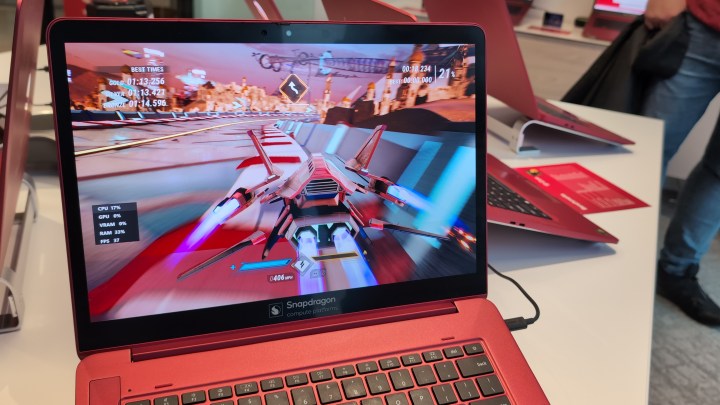
While the current selection of Copilot+ PCs aren’t focused on gaming, Microsoft has expressed strong confidence in the potential of gaming on Arm-based PCs.
With the launch of Qualcomm’s Snapdragon X Elite platform, the tech giant highlighted several improvements and initiatives aimed at enhancing the gaming experience on the platform, particularly with the Copilot+ PCs coming soon. These advancements include optimizations through Microsoft’s “Prism” technology, automatic super resolution, and enhanced anti-cheat software compatibility, all of which address some of the long-standing challenges faced by Arm-based systems in the gaming sector.
One of the key areas of focus has been performance optimization. Microsoft claims that with the integration of Prism technology, consumers will notice a significant boost in gaming performance on Arm-based devices, making them more competitive with traditional x86 systems.
This includes better handling of DirectX 12, reduced latency, and overall smoother gameplay experiences. The company has also worked on ensuring that anti-cheat software, a crucial component for maintaining fair play in online gaming, is fully compatible with Arm-based systems, thus broadening the appeal of these devices to a wider gaming audience.
Automatic super resolution and anti-cheat compatibility are very important as well. Super resolution will enable higher frame rates, while improvements to anti-cheat software compatibility will help make more games playable.
Even without these new features, during our brief testing of a reference laptop equipped with a Snapdragon X Elite, we did observe some decent and relatively stable performance, which was promising. We’re continuing to test more of the first batch of Copilot+ PCs, so we’ll have more impressions on gaming performance in the near future.

It should be noted, however, that gaming on these Copilot+ devices still isn’t the main intent. One major concern is the existing library of games and their compatibility with Arm architecture. While newer titles may benefit from Prism optimizations, older and more established games might not run as smoothly or may require significant updates to be fully compatible. This will undoubtedly limit the gaming options available to Arm users, especially in the short term.
Another factor to consider is the developer community’s adoption of Arm technology for gaming. While Microsoft’s efforts to enhance compatibility and performance are commendable, widespread success will depend heavily on game developers’ willingness to optimize and support their titles for Arm platforms natively. This requires substantial investment in development resources and time, which developers may hesitate to commit unless there is a clear and substantial market demand. Some more capable gaming-focused hardware would need to come first before we see any real commitment from the gaming community.
That being said, Apple is beginning to make progress in terms of bringing developers to its own Arm-based platform, and that may be a positive sign for future developments on Microsoft’s side too.



